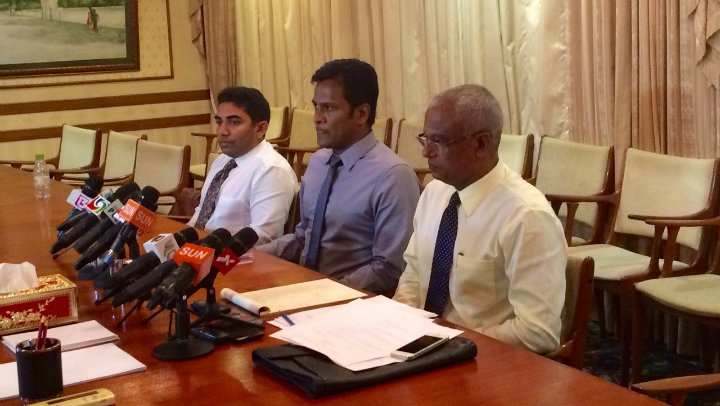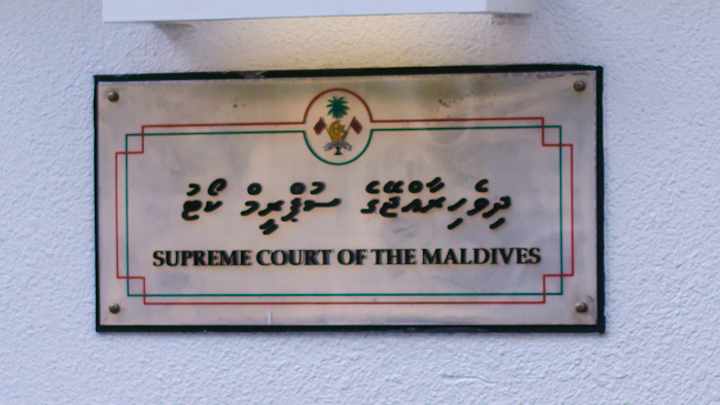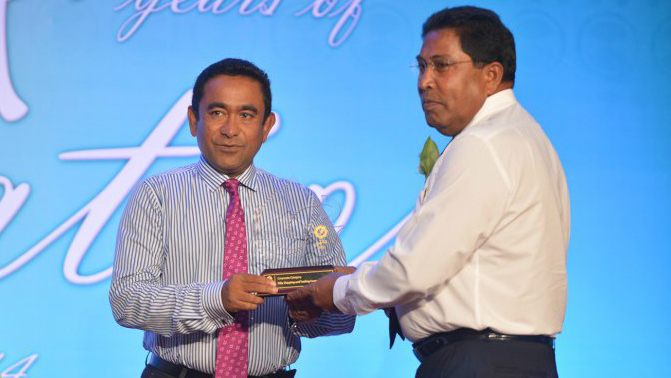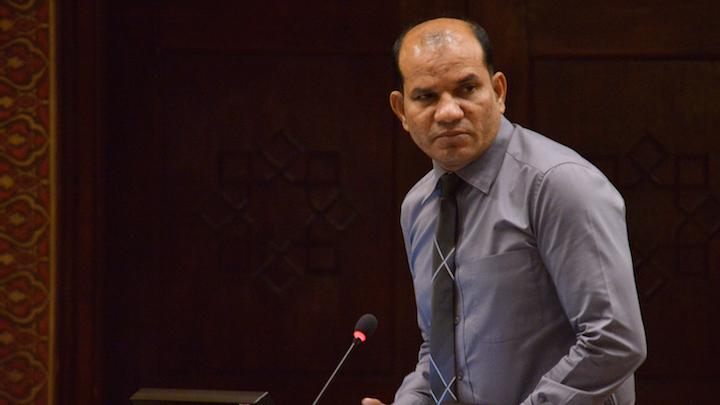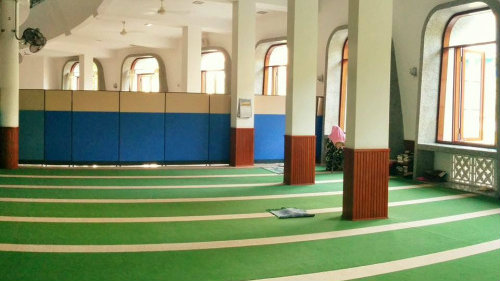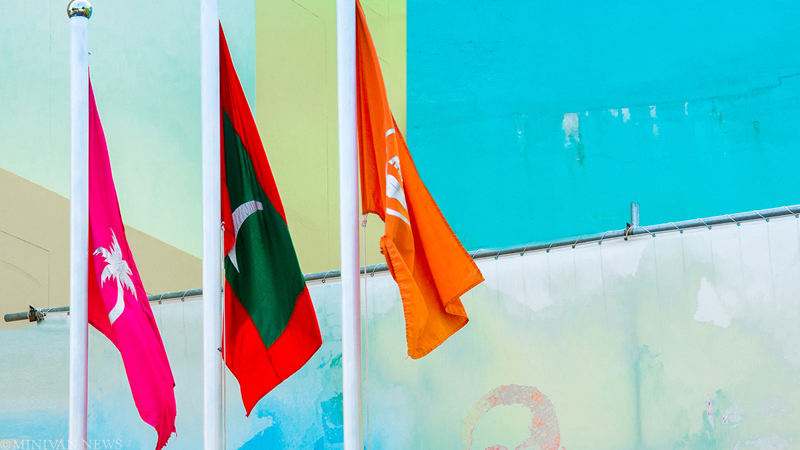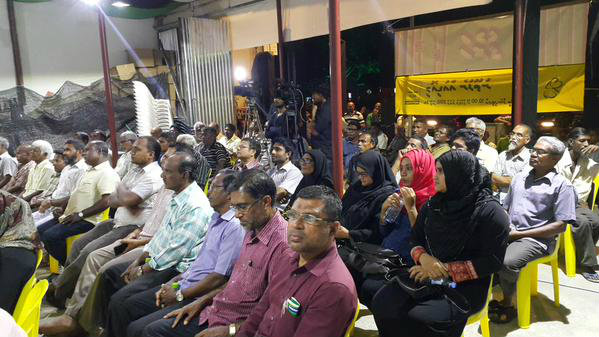Representatives of the government and the opposition remain optimistic of a resolution to a six-month long political crisis with home minister stating that the government is open to exploring avenues to release jailed politicians and withdraw charges against opposition supporters.
The main opposition Maldivian Democratic Party (MDP) submitted tonight a list with some 1493 people, who are either in jail, facing charges or under investigation for political activities.
At a second meeting with the government on Sunday night, MDP also requested a two-week timeline to come to agreements on President Abdulla Yameen’s agenda of political reconciliation, constitutional and judicial reform, and participatory development.
The government has, meanwhile, conceded to all-party talks at a later stage and agreed to allow parties to decide on who will represent them at the talks.
The Maldives has been gripped by turmoil since the arrest and imprisonment of several politicians, including ex-president Mohamed Nasheed. In the ensuing crisis, hundreds were arrested and three leaders were charged with terrorism.
Diplomatic pressure has been mounting on President Yameen to release all political prisoners.
A third meeting will be held on Wednesday. The government will answer MDP’s demands and make demands of its own in return.
Striking a conciliatory and at times jovial tone, home minister Umar Naseer said: “The government’s aim is not to get a quick fix, but to build sustainable relationships between the PPM and MDP. These talks are aimed not just to address the current turmoil, but aimed at coming to a long-term agreement or understanding.”
MDP MP Ibrahim ‘Ibu’ Mohamed Solih said: “The meeting proceeded in a very friendly atmosphere. The two parties worked constructively with the aim of bringing results.”
Fisheries minister Mohamed Shainee and president’s office minister Abdulla Ameen also participated in tonight’s meeting.
At the first meeting on July 1, the MDP had proposed five rules to proceed with talks, including joint talks, and conducting talks in three stages.
Naseer and Ibu tonight said that the two parties will discuss measures for political reconciliation at the first stage, and will invite the Jumhooree Party and religious conservative Adhaalath Party to discussions on constitutional and judicial reform, and participatory development at the second and third stages of talks.
Separate teams of ministers are in discussions with the JP and the Adhaalath Party.
Although the government tonight withdrew a veto on Nasheed representing the MDP at talks, it is not clear if he will be physically present at the meetings. The opposition leader was transferred to house arrest in late June after the opposition backed a constitutional change that would allow President Yameen to replace his deputy.
Naseer also blocked a question whether the government plans to repeal a law that had stripped Nasheed of the MDP presidency.
When asked if he is authorized to make decisions on behalf of the government, the home minister said: “I brief the president on the proceedings at the talks, the MDP’s proposals, and ask if there is any points he’d like to decide on and we proceed according to his decisions. There are no difficulties.”
The MDP’s demands for political reconciliation are:
- To make concessions on “politically motivated sentencing” of politicians, including Nasheed, Nazim, ex-defence minister Tholhath Ibrahim and MP Ahmed Nazim
- Withdraw “politically motivated charges” against protestors, including Sheikh Imran
- Withdraw economic sanctions against businessmen, including JP leader Gasim Ibrahim, ex MP Abdulla Jabir’s Yacht Tours, and MDP deputy chairperson’s AAA company
- Job security for councilors, civil servants and employees of state owned companies
- Independent inquiry into the murder of MP Afrasheem Ali and the disappearance of Minivan News journalist Ahmed Rilwan
- Independent investigation of the death threats sent via text messages to politicians and journalists
The MDP has also called for a constitutional change to a parliamentary system, contending that the presidential system of government has failed in the Maldives.
The tax authority last week removed a freeze on Gasim’s Villa Group accounts.
